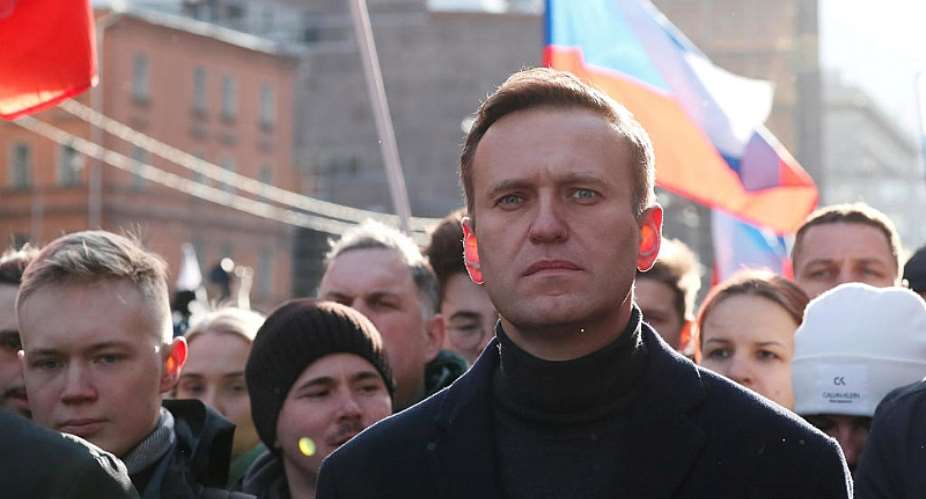Germany, the current head of the European Union, has threatened to call for sanctions against Russia over the poisoning of Alexei Navalny, unless the Kremlin provides an explanation of its role in the use of the Soviet-era nerve agent Novichok against the opposition politician.
Russian opposition leader and anti-corruption campaigner Navalny fell ill on a flight last month and was treated in a Siberian hospital before being evacuated to Berlin.
Germany said last week there was "unequivocal evidence" that President Vladimir Putin's top foe had been poisoned using the Soviet-era nerve agent Novichok.
"We have high expectations of the Russian government to solve this serious crime," Berlin's foreign minister Heiko Maas told German daily Bild. "If the government has nothing to do with the attack, then it is in its own interest to back this up with facts."
If Russia does not help clarify what happened "in the coming days", Germany will be compelled to "discuss a response with our allies," Maas said.
Violation of chemical weapons law
The crime against Navalny was a violation of the international Chemical Weapons Convention and there must be an appropriate response, he said. "When we think about sanctions, they should be as targeted as possible."
Western leaders and many Russians have expressed horror at what Navalny's allies say is the first known use of chemical weapons against a high-profile opposition leader on Russian soil.
The Kremlin has denied responsibility for the attack and Foreign Minister Sergei Lavrov said Germany is yet to share any findings with Moscow's prosecutors.
Foreign ministry spokeswoman Maria Zakharova on Sunday accused Germany of stalling efforts to probe the Navalny case.
London adds diplomatic pressure
Britain on Sunday said Russia had "a very serious set of questions to answer" about the poisoning of Navalny, suggesting some form of state involvement in the high-profile case.
Foreign Secretary Dominic Raab said it was "clear" the Kremlin critic was poisoned with Novichok, which was previously used in an attack against a Russian former double agent in Salisbury, southwest England, in 2018.





 CODEO deploys 195 observers to monitor EC’s limited registration exercise nation...
CODEO deploys 195 observers to monitor EC’s limited registration exercise nation...
 Accra 2023: Minority demands accountability of $240million expenditure
Accra 2023: Minority demands accountability of $240million expenditure
 Man sets himself ablaze after failed attempt to kill his wife
Man sets himself ablaze after failed attempt to kill his wife
 EC targets 622,000 new voters in limited registration exercise
EC targets 622,000 new voters in limited registration exercise
 Election 2024: Mahama holds 19% lead over Bawumia among first-time voters — Glob...
Election 2024: Mahama holds 19% lead over Bawumia among first-time voters — Glob...
 Saglemi: Tenants’ Union threaten court suit against private partnership
Saglemi: Tenants’ Union threaten court suit against private partnership
 We've reduced the suffering Mahama left you – Bawumia to Ghanaians
We've reduced the suffering Mahama left you – Bawumia to Ghanaians
 It's still true, FX rate will expose weak economic fundamentals; cedi far better...
It's still true, FX rate will expose weak economic fundamentals; cedi far better...
 'I'm up to the task, competent, trustworthy, hardworking' – Bawumia
'I'm up to the task, competent, trustworthy, hardworking' – Bawumia
 EC begins nationwide limited voter registration exercise today
EC begins nationwide limited voter registration exercise today
